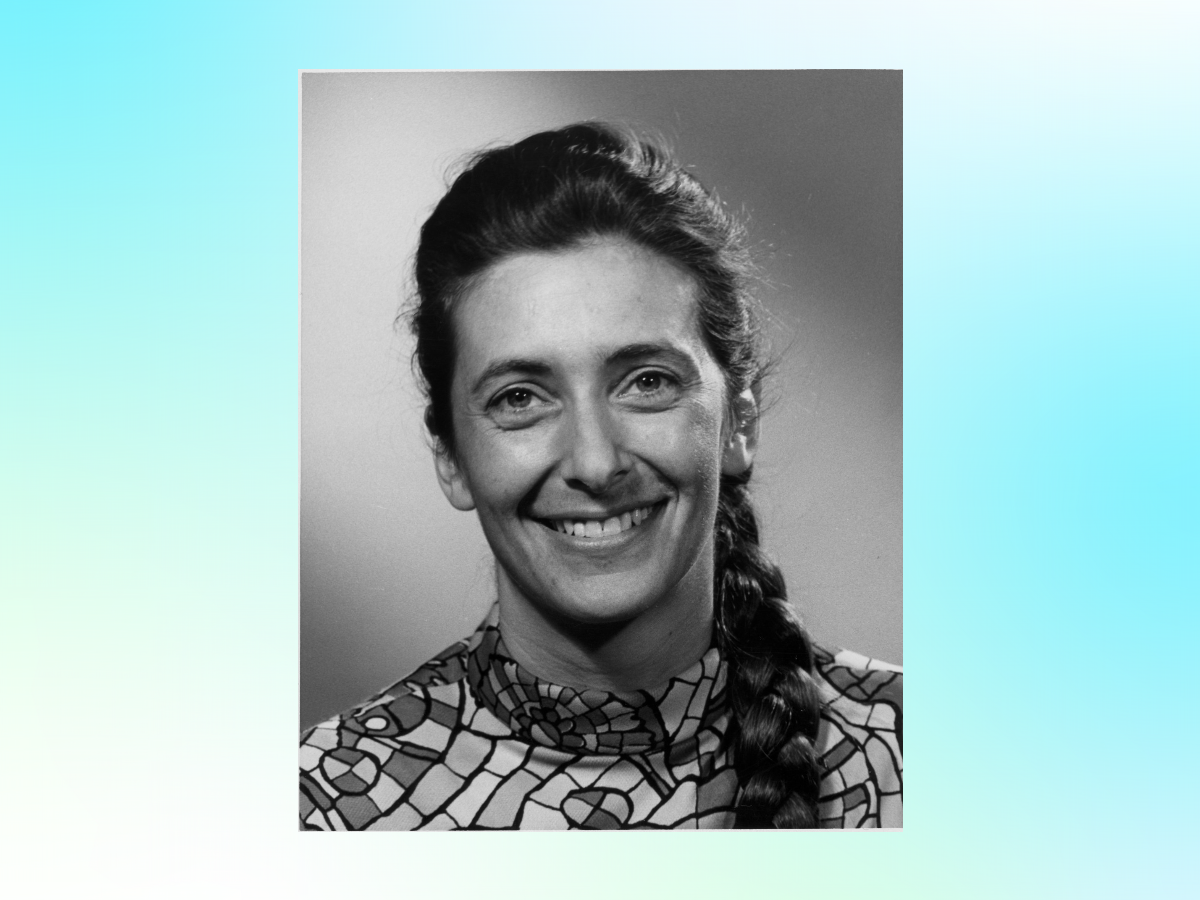“I didn’t have any idea of success—things just happened,” Dr. Ellen Stekert says. A veteran of the same 1960s folk revival that produced Bob Dylan and Koerner, Ray, and Glover, Stekert went on to teach folklore and anthropology at the University of Minnesota, to serve as Minneapolis arts commissioner in the ’70s, and to create the post of state folklorist of Minnesota.
“By the time the folk-song revival really got going, I was starting at college and I had gotten myself so involved with being an academic that success as a singer did not occur to me,” she says, speaking from the comfort of her south Minneapolis living room.
But success did come. Stekert, now 89, has been performing folk music for 75 years, and this March she’s finally achieving a long-term goal: releasing her first independent album, Go ‘Round Songs.
As Stekert cultivated her career as an academic, she compiled hundreds of recordings of fieldwork and performances. Her first job in teaching had her hired at Wayne State University after a performance and seminar on folk music at the school.
“I didn’t only give a performance,” she says. “I would talk about the beginnings of the songs. Where they came from, what they were, what they meant. That was what my dissertation was on: what do these mean to people? Not just, ‘here they are, folk songs.’ It was more than that. I’d show how songs changed over time.”
In 2020, as a post-retirement hobby, she revisited her archive and began to digitize the recordings.
“Until I started to do my own digitizing, frankly, I didn’t think I was a good singer—it was like meeting yourself walking down the street,” she says. “But I do think I had a really good voice. And I just like to use it. I love to sing; I knew I could give something to people that way. It was like giving them something that was from another world, another culture, that I had put together with the guitar in a way that was my own creation. I didn’t write songs; I gave them another kind of life so that it would communicate with someone else. The song will talk for itself, but I can give it another life.”
Still, she wasn’t sure how to produce and distribute a selection of these recordings. “I didn’t learn how to do all this. I was born before television, you realize!” she says. It was in 2024 that everything fell into place when she met her producer, Ross Wylde, on eBay, of all places.
The 25-year-old folk musician from the California Bay Area first appeared in Stekert’s life last August, when he messaged her on eBay about the origin of a photograph of Bob Dylan that she was selling. Stekert explained that she’d taken the picture herself backstage at the 1964 Newport Folk Festival.
Wylde suddenly realized he was talking to a musician he’d been listening to for years. “I recognized her name from a YouTube video I saw years prior of her covering this song called ‘Dink’s Song,’ which is a popular folk tune from the early ‘60s,” he says. “She has incredible stories to tell about the folk revival era. She has such a wealth of knowledge… When I met her, it was kind of a dream.”
Stekert and Wylde soon developed a lively friendship, talking on the phone and Zoom regularly, sometimes daily. When Stekert told him she wanted to make an album out of her archive of recordings, Wylde couldn’t believe his luck. He immediately offered to produce and master her recordings.
Go ‘Round Songs isn’t Stekert’s first album. Between 1955 and 1958, she released four records on three different labels, but she wasn’t satisfied with them. “None of the records I made represent what I can sing and they were not well produced,” she says. “Two of them were produced by the same guy, who had a tin ear.”
She stopped releasing music after her 1958 record Songs of a New York Lumberjack, but mentions that the production process for Lumberjack offered inspiration for Go ‘Round Songs’ title: “The old lumberjack I collected songs from in New York State, whenever I’d ask him where he’d learned something—because that’s what you’re trained to do—he’d think that was a stupid question! Because you don’t learn any song from just one source; it’s a go around song.”
Stekert says she needed the right collaborator to make the record she wanted to. “I needed somebody to push me. As aggressive and as mouthy as I am, I didn’t have much faith in myself really,” she says. “I’m not a good critic of myself.”
Wylde was that collaborator. “He has a tremendous sense about art,” Stekert says of Wylde. “He is probably one of the most honest, sensitive, and practical [people]. He can put things into action. I am astonished; for his age, he is one of the most capable people I have ever met.” Together, they chose photographs from Stekert’s life to grace the covers of the album’s singles and selected the recordings. Wylde mixed and mastered the digitized recordings, some dating back as far as 1950.
Still, something was missing. While talking to Wylde on Zoom one afternoon, Stekert mentioned the loss of her precious 1955 Martin guitar. Her parents gave it to her when she was a college sophomore; it’s by her side in almost every photo of her from that era. She describes its disappearance as one of the worst things that has happened in her life: “It was like somebody walked off with my right arm.”
In the spring of 2007, Stekert gave it to a close friend as collateral for a $2,000 loan. However, when she’d repaid this friend, he said he’d sold it and refused to offer any further information. Stekert pleaded with him for months but her former friend offered curt replies and no assistance, a response Stekert describes as “heartless.”
Emboldened by this story, Wylde embarked on a journey to find the lost guitar, asking Twin Cities locals in several online forums for advice. Many pointed him in the direction of local pawn shops and guitar shops (notably including Willie’s American Guitars in St. Paul, who’d helped Jimmy Page find his custom Les Paul in 2015). Several shops were willing to check their records, but Stekert’s influential 1955 Martin remains missing. Still, Stekert grins while thinking about the decades of music she made with her instrument. “The guitar still lives on in my possession in the recordings. Isn’t that amazing?”
These two musicians’ fateful collaboration on Go ‘Round Songs tells of a friendship between an esteemed contributor to the field of folk music and a young musician who was inspired by those contributions for his entire life.
“As a young folk musician, to work with someone who’s that legendary is just a dream come true,” Wylde says. “When I heard her recordings, I knew that people had to hear them.”






